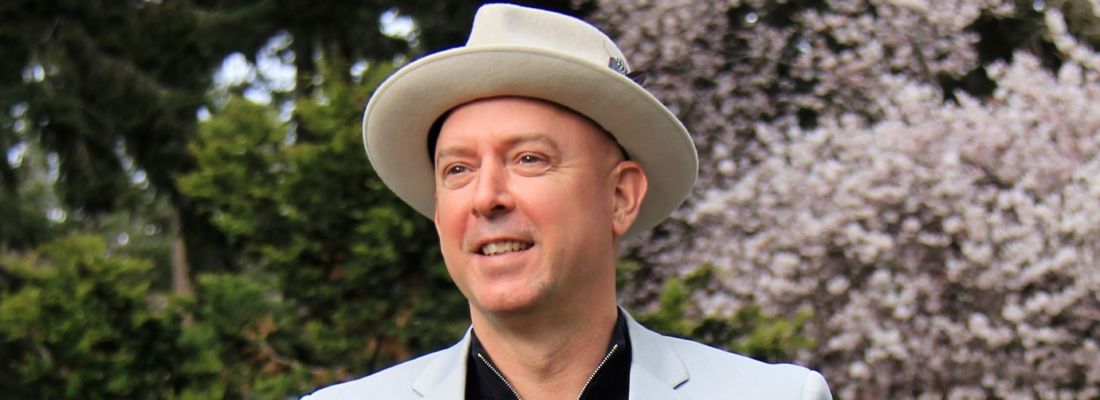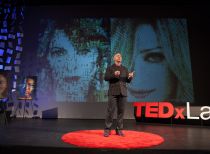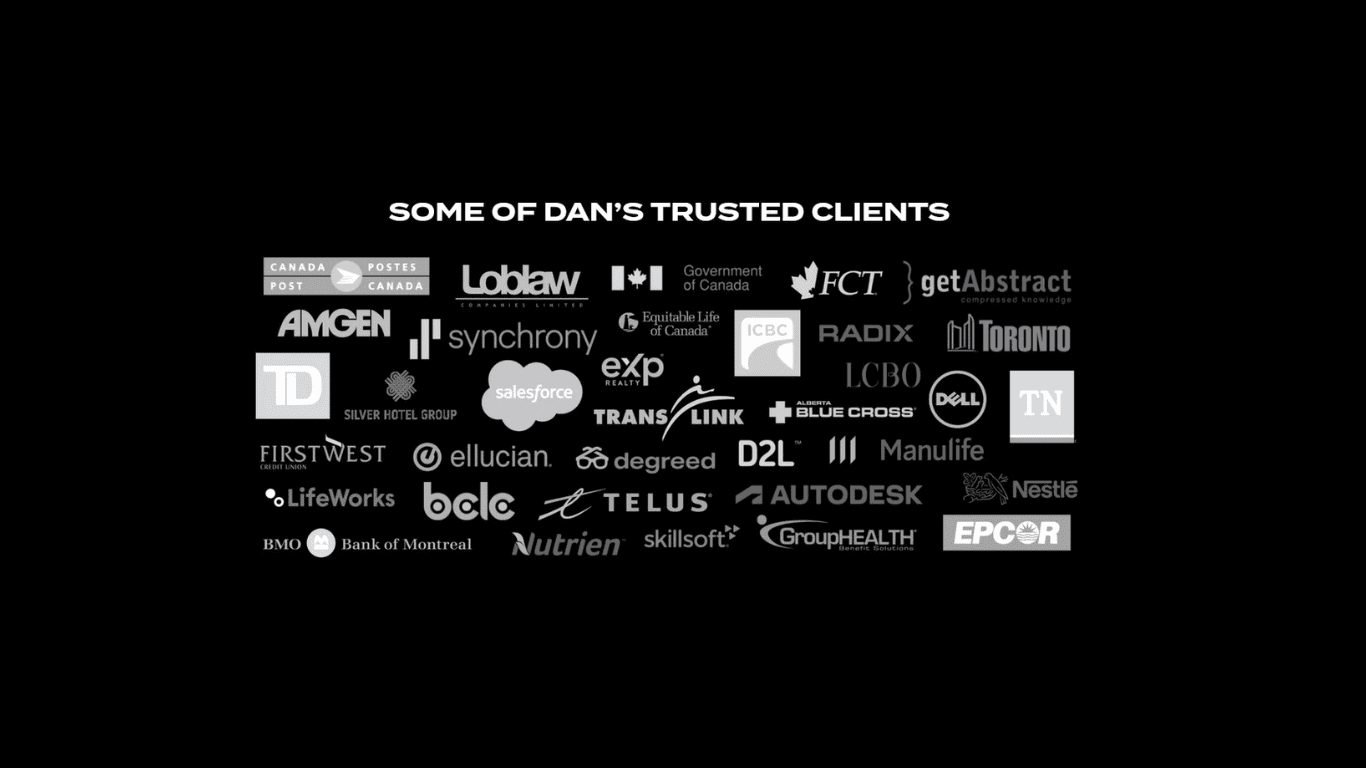Keynote Speeches
Dan works with each client to determine what the best for the big day. These are some of the key themes, stories and concepts that serve as a basis for the content:
For far too long – including throughout the pandemic – organizations have functioned in ways that make us feel like every day is a root canal at the dentist’s office. We need to first understand why it’s been this way, but we also require a pathway to adjust – both personally and organizationally. Join this session to find your path to joy by becoming experts at decoding work.
Key Takeaways/Applications:
- Discover what organizational impediments get in the way of our workplace happiness.
- Ascertain the personal hurdles and hindrances that cause workplace dissatisfaction.
- Employ tactics to help you develop virtues, character, agency, autonomy, affiliation, ambitions, competence, and networks.
- Develop strategies to circumnavigate organizational barriers such as org charts, HR policies, strategy statements, decision trees, and more.
Genuine leadership—how leaders act as human beings in their daily and strategic work with employees, customers and stakeholders—is arguably missing in many of today’s organizations. The reasons are all too familiar. It has to stop. Author Dan Pontefract recommends several leadership strategies and techniques that are sure to get you thinking about your own leadership habits and track record. The Field Guide to Genuine Leadership tackles the many taboos of bad leadership, while outlining practical, meaningful ways in which to become a more humane and effective leader.
Many of our current systems train us merely to function. We learn the routine. We master the process. The regiment starts at school, continues at university, and goes into overdrive when we begin to work. The problem? Ultimately we have lost the ability to think critically, to be creative, and to contemplate ideas of the unknown. Standards, procedures, technology, and incessant demand for short-term results over long-term planning are the big winners. In order to mitigate such calamities including the relentless pursuit of action and the pressure to “do more with less,” individuals must return to a state of balance between the three components of productive thought: dreaming, deciding, and doing. In this talk, author Dan Pontefract introduces tangible, actionable strategies to improve the way we think as organizations and individuals through the cyclical process of Creative Thinking, Critical Thinking and Applied Thinking. To become an Open Thinker, one must understand the relationship between reflection and action, and how it can negatively or positively affect an outcome. Dream. Decide. Do, Repeat.
Leaders may not know it yet, but having a sense of purpose has become table stakes for many employees at work. Equally important, today’s organizations are being pressured to begin exhibiting purpose in their operating practices. If there is a positive interconnection between the three distinct categories of purpose–personal, role and organization—the benefits will be felt by all stakeholders. Author Dan Pontefract refers to this balanced state of purpose as the ‘sweet spot.’ The alignment of purpose between self, role and organization is important not only for employees, but for leaders in the organization itself. The more a leader can assist employees to understand the alignment of personal, organizational and role purpose, the quicker everyone will recognize how important the ‘sweet spot’ is to an engaging and fulfilling lifetime of work. The quicker an employee defines, develops and decides their purpose—alongside how bought in they are to the organization’s purpose—the more engaged and innovative they will be in their role … and in their life in general.
Ever wonder why global levels of employee engagement in organizations continue to wane and remain so incredibly low? For leaders in any organization seeking to improve productivity and business results, they must first start with its own operating culture. To improve organizational culture is to build up and unleash behaviours that permit employees to connect and collaborate with one another effortlessly and full of goodwill. An employee only becomes engaged when the culture is open, transparent, communicative, collaborative and trustworthy. These are just some of the behaviours that must define how an organization operates. Author Dan Pontefract implores organizations to rethink its workplace culture by instituting systemic-wide behaviours that encourage one another to work together versus in silos or competitively. Engagement of employees occurs as a result of how they feel about the organization’s culture and its purpose. There is a way to fix it, and Dan has a way to help you out.












Similar
Speakers